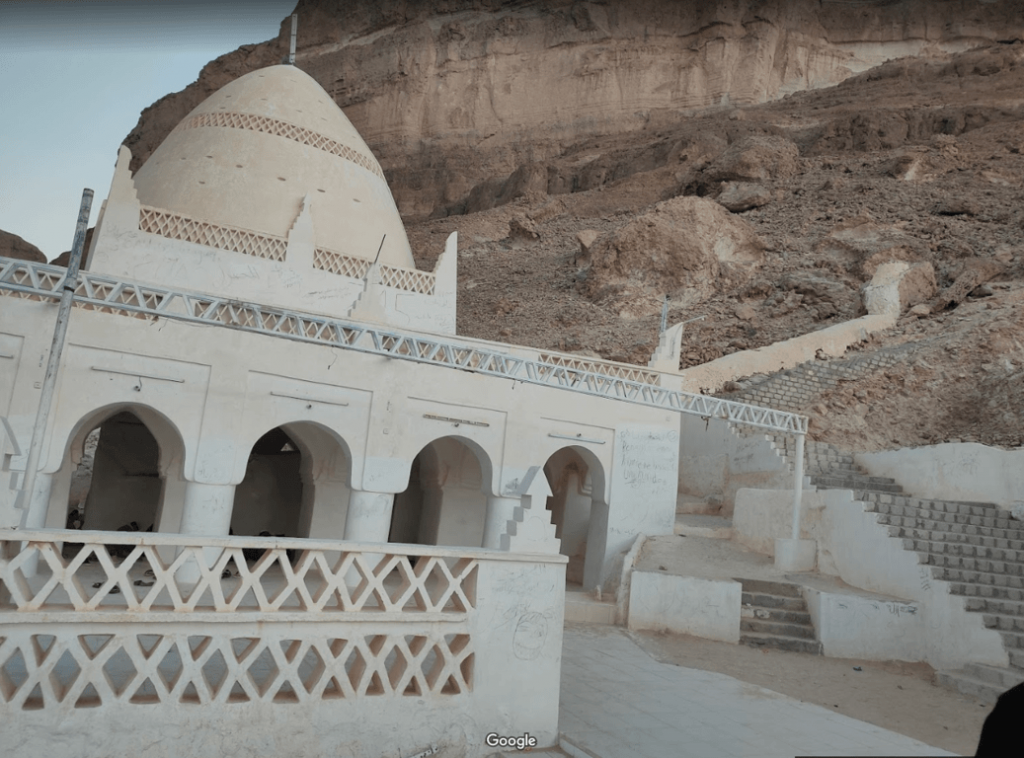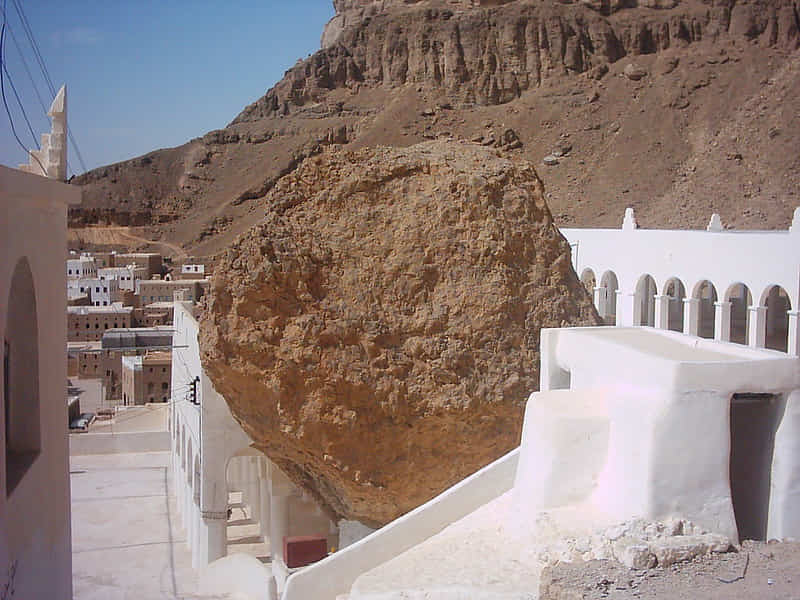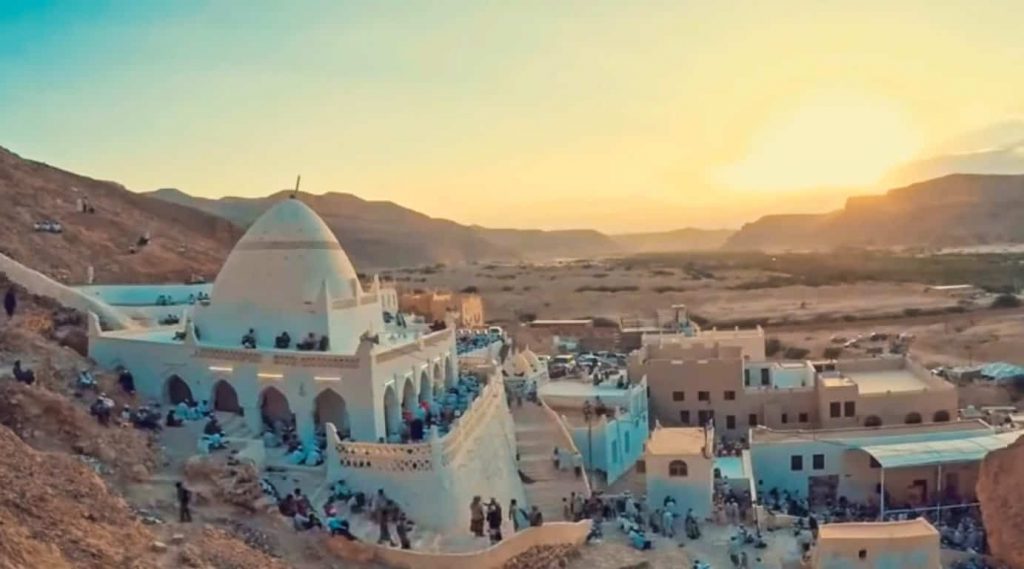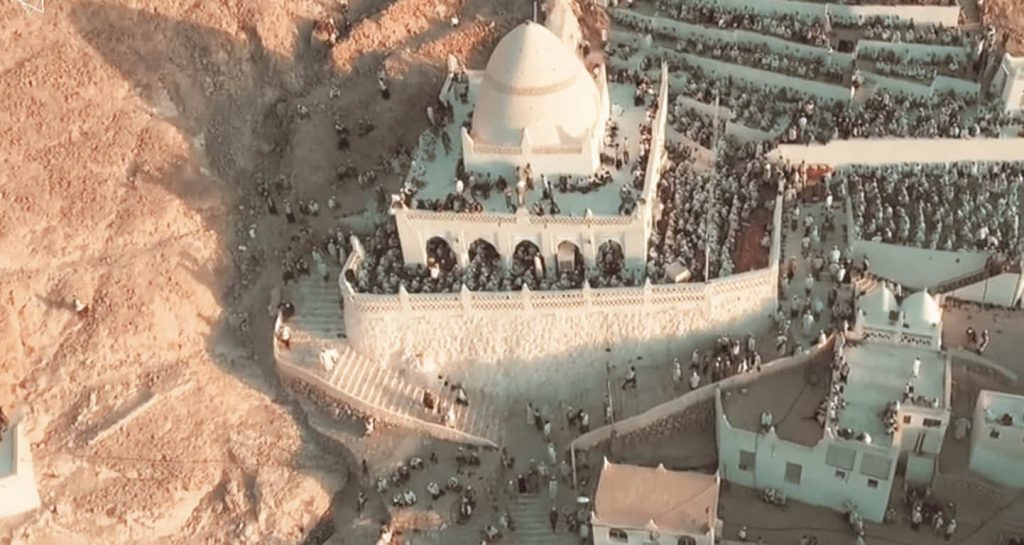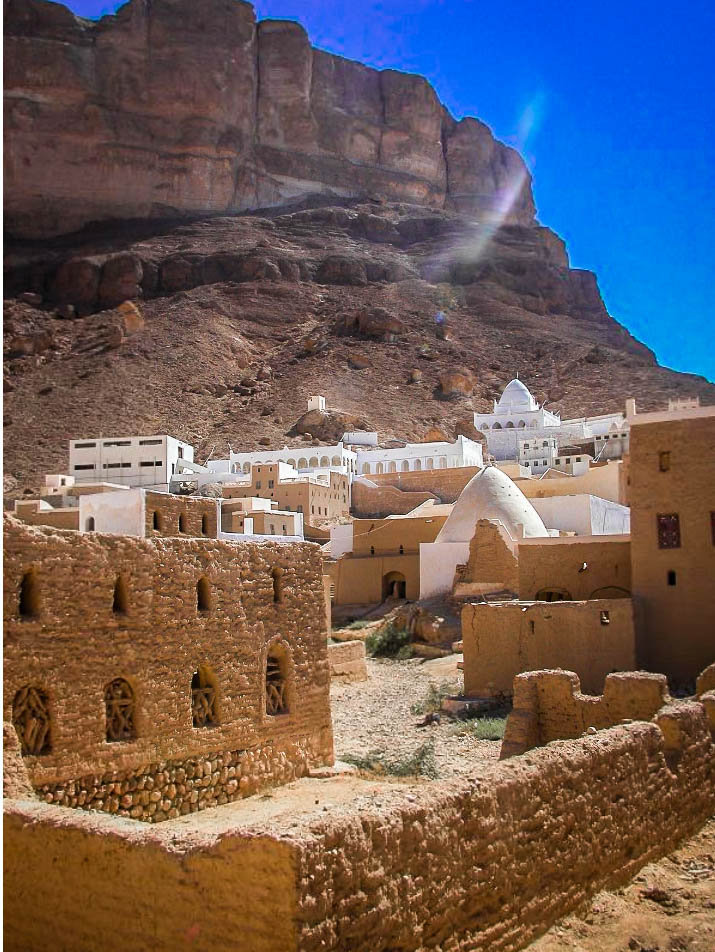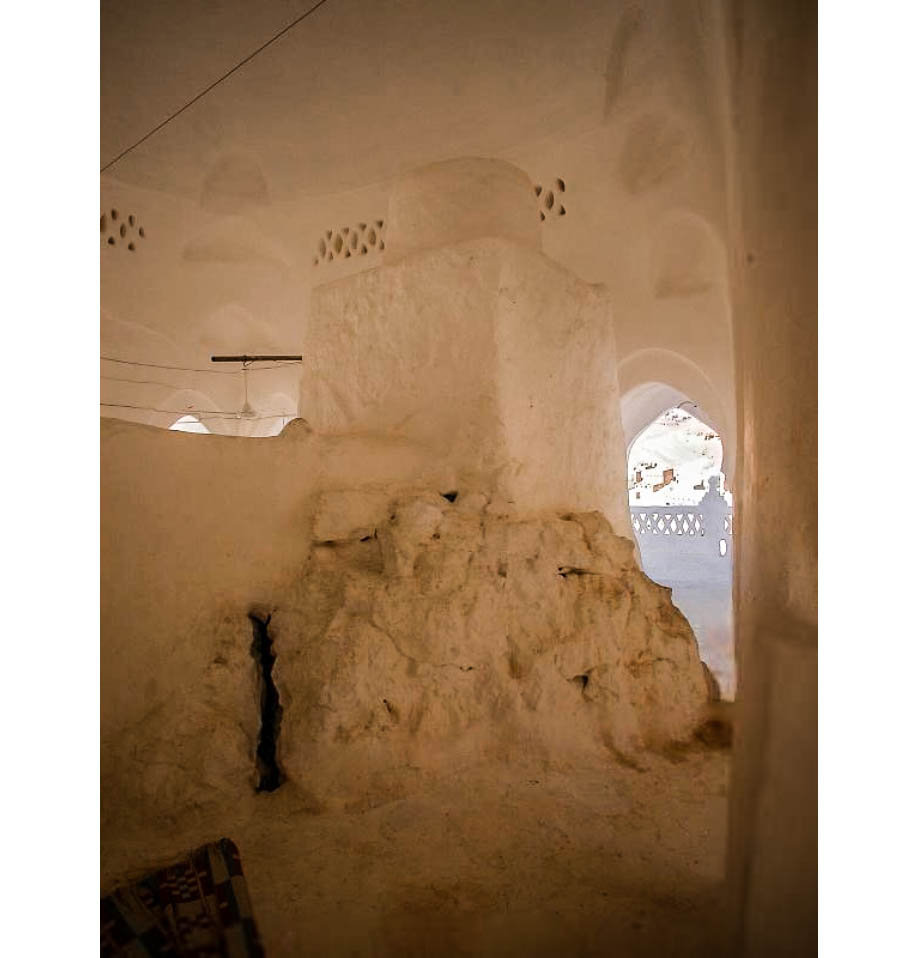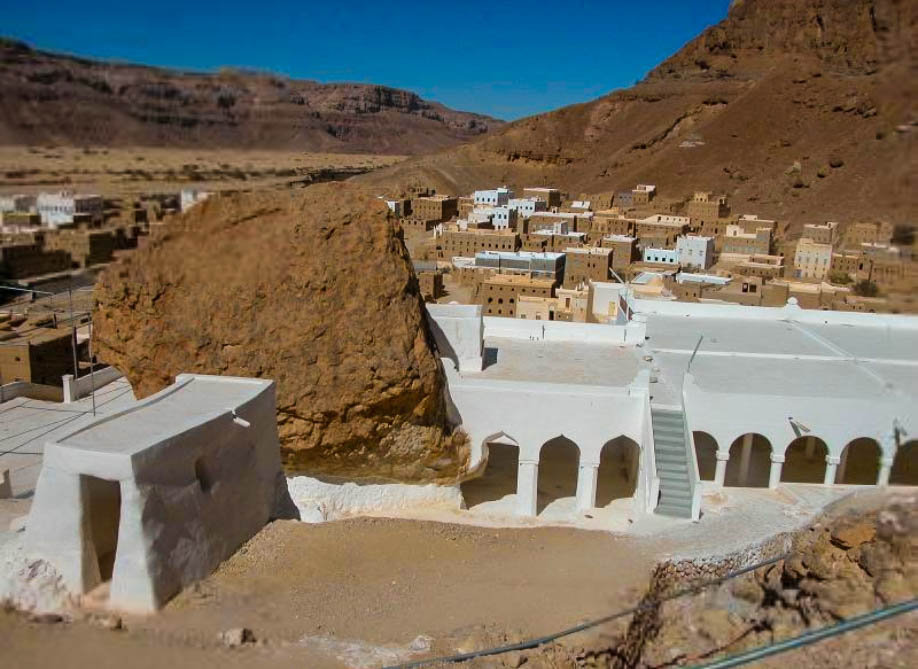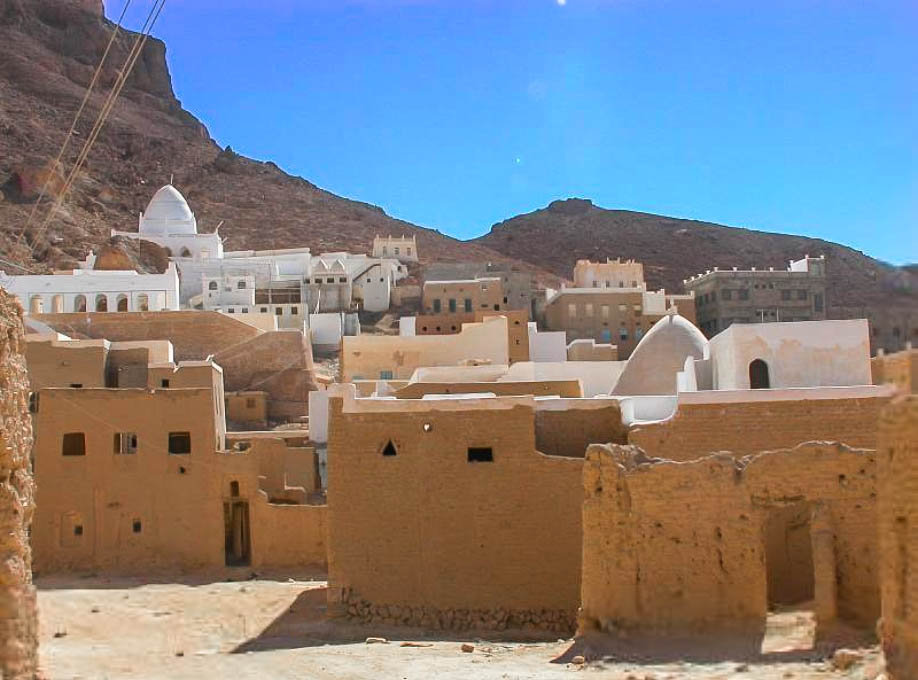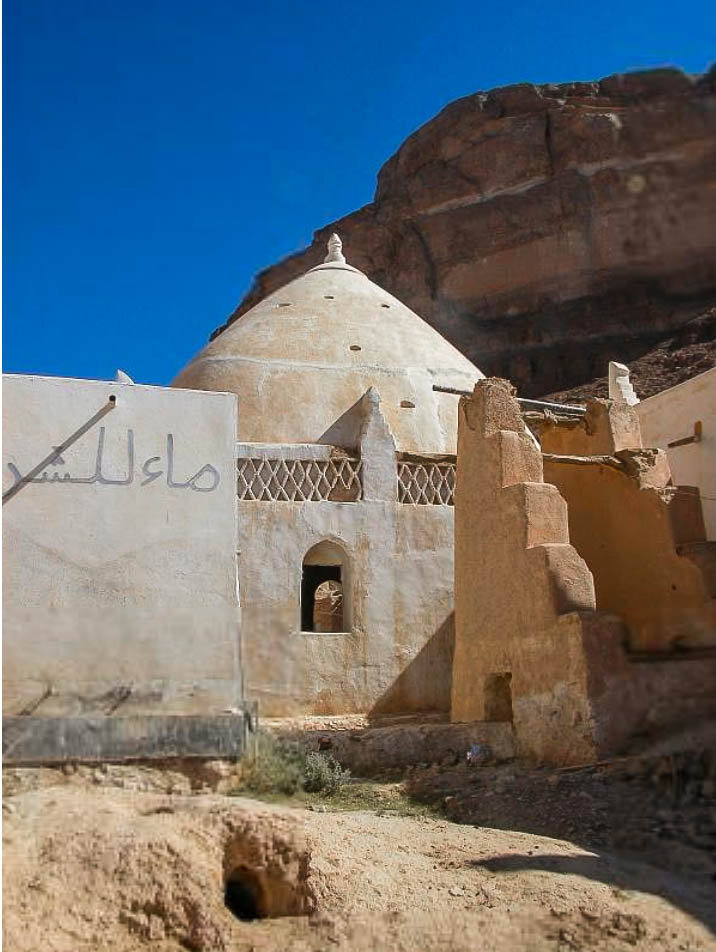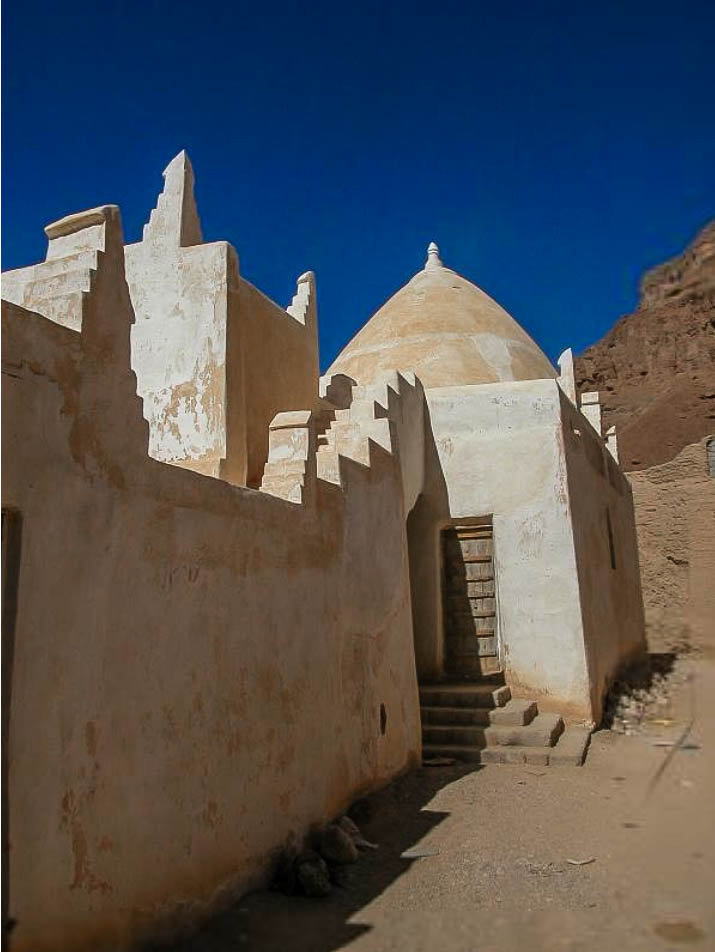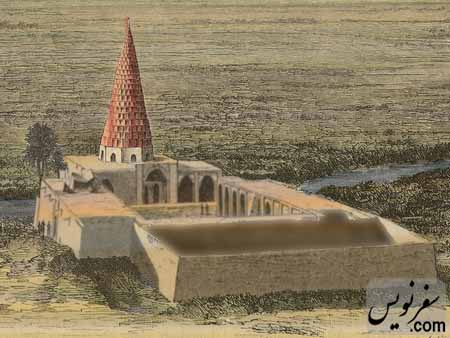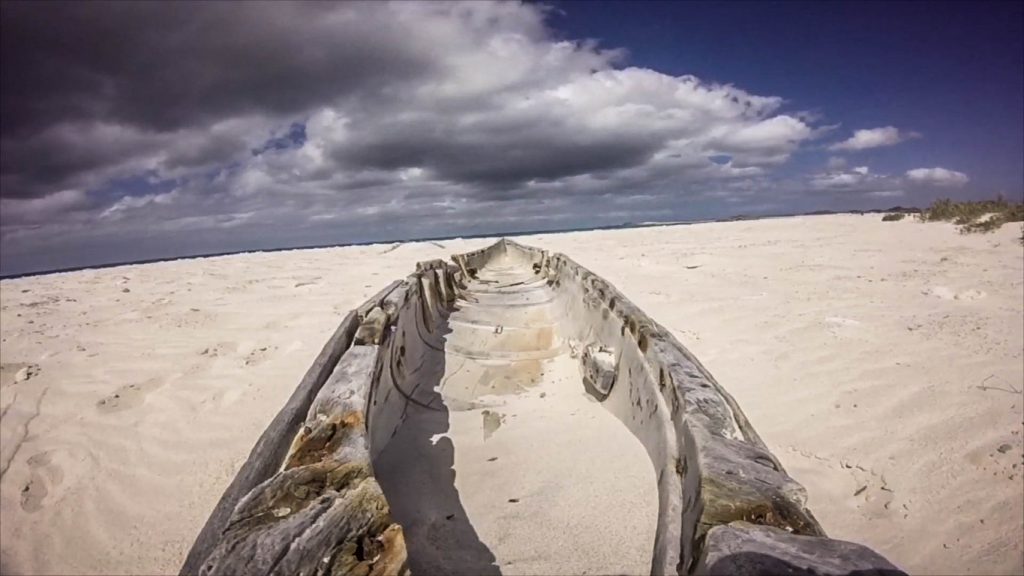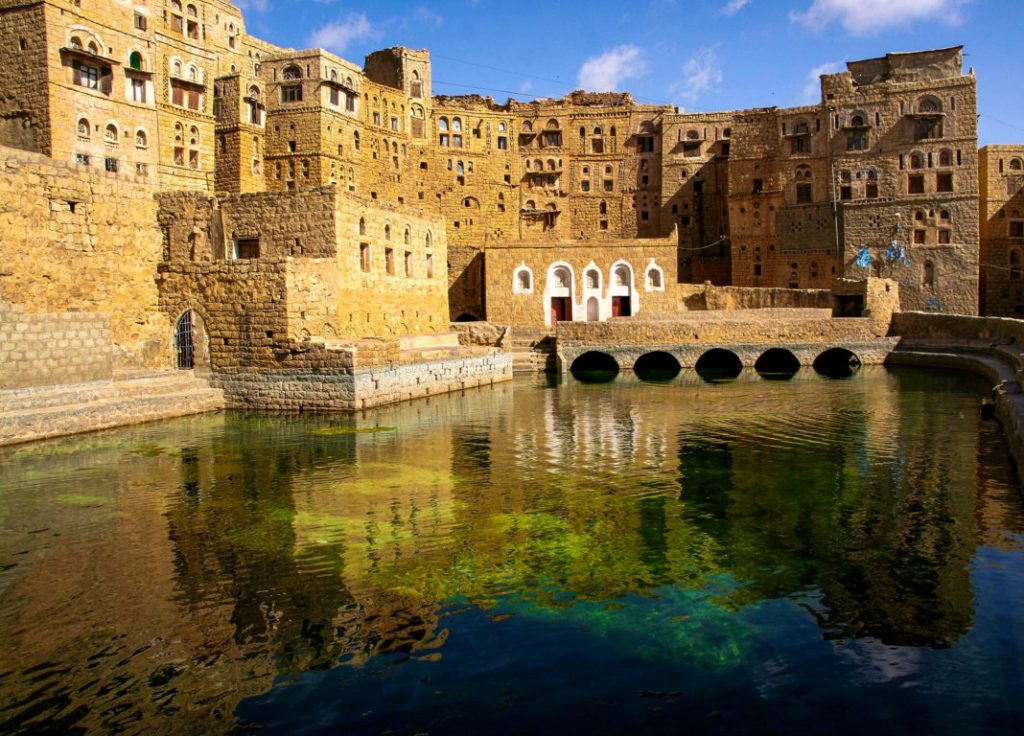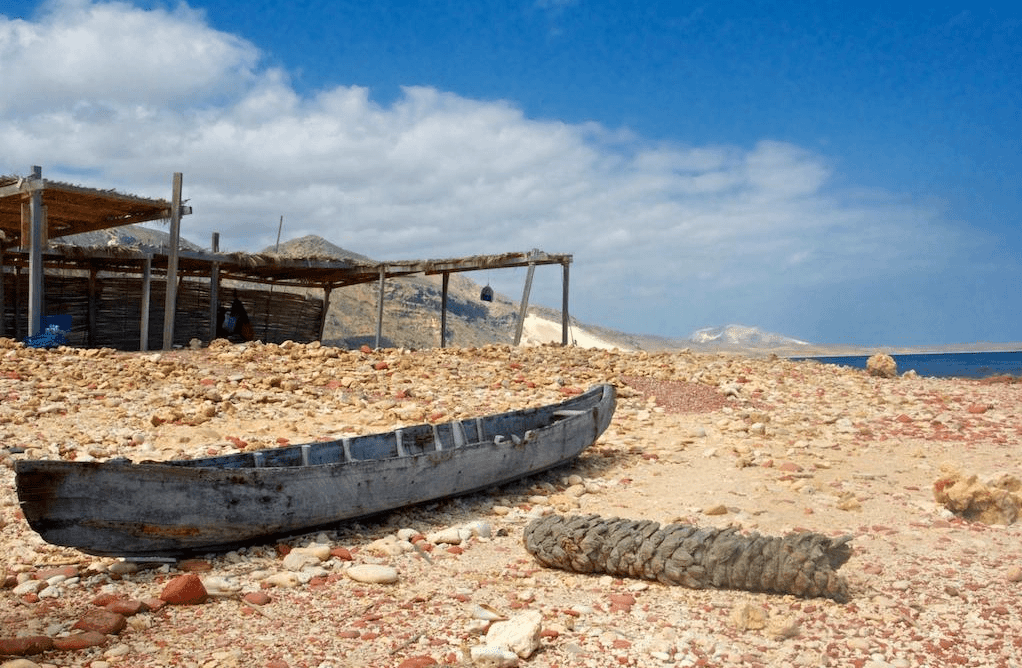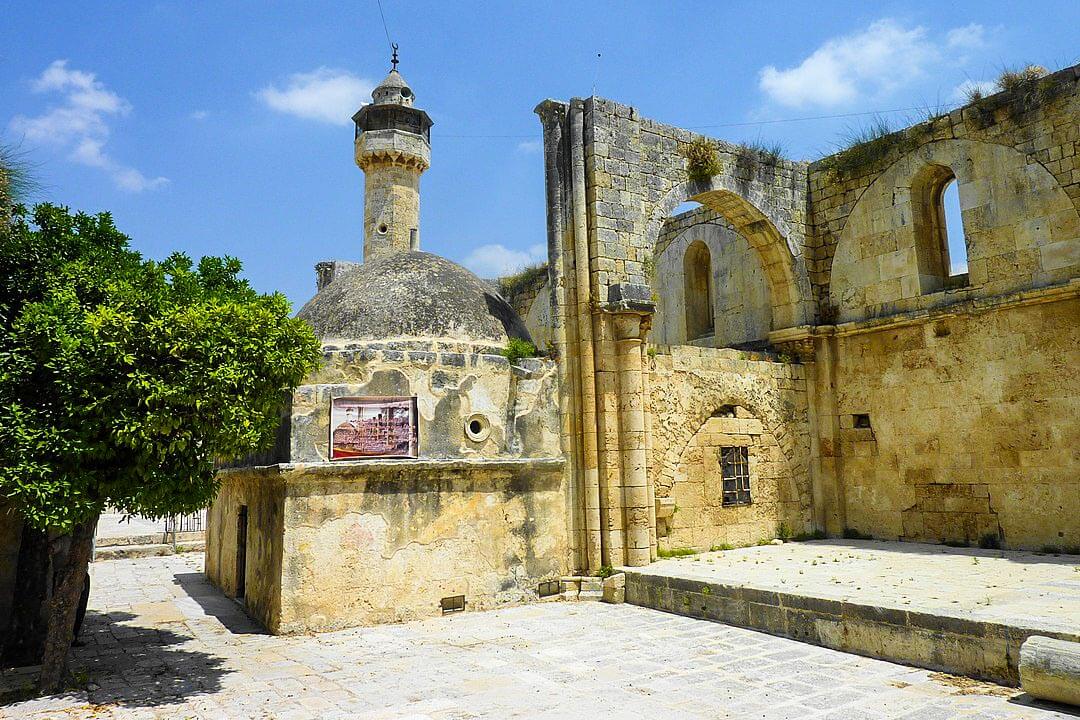Hadhramaut, Yemen
Coordinates: 16.105400, 49.570600
Nearby Places
- The shrine of Imam Sheikh Abu Bakr bin Salem رحمة الله عليه 44.89 Km W (266°)
- Tarim, city of Prophets and Saints 60.40 Km W (265°)
- Qasr al-‘Ishshah 61.03 Km W (265°)
Hz. Hud عليه السلا was a prophet of ancient Arabia mentioned in the Qur’an. The eleventh chapter of the Quran, Hud, is named after him, though the narrative of Hz. Hud عليه السلا comprises only a small portion of the chapter.
Hz. Hud عليه السلا has sometimes been identified with Eber, an ancestor of the Israelites who is mentioned in the Old Testament.
He is said to have been a subject of a mulk named after its founder, Ad, a fourth-generation descendant of Hz. Nuh عليه السلا (his father being Uz, the son of Aram, who was the son of Shem عليه السلا, who, in turn, was a son of Hz. Nuh عليه السلا)
The Pilgrimage
Pilgrimage to the tomb of Prophet Hud عليه السلام, which starts on the 8th day of the month of Sha’ban each year, is attended by tens of thousands of Hadhramis, as well as Sufi adherents from all over the world. To this day, the month of Sha’ban is known as “the month of Hud” in Hadhramaut.
The drive to the tomb winds eastwards from Aynat through desolate, uninhabited valleys. It is believed that sometime around 2500 BC, this region of Hadhramaut was the home of the people of ‘Ad.
From a distance, the town of Qabr Hud عليه السلام (meaning “Grave of Hud” in Arabic) looks like any other small Hadhrami habitat in the wadi – an assortment of dusty mudbrick buildings situated at the foot of a cliff hundreds of meters high. Qabr Hud عليه السلام is not the exact site where the people of ‘Ad lived – rather, it is where Prophet Hud عليه السلام passed away, many years after the ‘Ad were destroyed. The general landscape consists of brown rocks, desert dust and the surrounding limestone cliffs.
The tomb of Prophet Hud عليه السلام stands at the apex of the town, covered by a dome. The rock tomb itself is more than 30 meters long – local history narrates that the ‘Ad people were of gargantuan build. At one end, a cleft is cleaved into the tomb, and the exposed rock here is touched or even kissed by some of the pilgrims.
The Location of Ad
The Quran gives the location of Ad as being Al-Ahqaf (The Sandy Plains,” or “the Wind-curved Sand-hills”). It is believed to have been in the southern part of the Arabian Peninsula, possibly in eastern Yemen and western Oman. In November 1991, a settlement was discovered and hypothesized for Ubar, which is thought to be mentioned in the Qur’an as Iram dhal al-Imad (Iram of the Pillars) and may have been the capital of Ad.
The rock onto which Hz. Hud عليه السلا climbed to make the call to prayer
Robert Bertram Serjeant in his study of the pilgrimage rite to the tomb of Hz. Hud عليه السلا verified on the spot the facts related by al-Harawi, 97/220–1 who described, at the gate of the Mosque, on the west side, the rock onto which Hud climbed to make the call to prayer and mentioned the grotto of Balhut at the bottom of the ravine. Around the tomb and neighborhood, various ancient ruins and inscriptions have been found. However, as is often the case with the graves of prophets, other locations have been listed. A possible location for his qabr is said to be in Salalah, Oman, or in Wadi us Salam in Iraq.
The Story
Description of the People of Ad
The people of ‘Ad lived many years in the windswept hills of an area between Yemen and Oman. They were physically well built and renowned for their craftsmanship, especially in the construction of tall buildings with lofty towers. They were outstanding among all the nations in power and wealth, which, unfortunately, made them arrogant and boastful. Their political power was held in the hand of unjust rulers, against whom no one dared to raise a voice. They were not ignorant of the existence of Allah, nor did they refuse to worship Him. What they
did refuse was to worship Allah alone. They worshipped other gods, also, including idols. This is one sin Allah does not forgive.
Description of Hz. Hud’s عليه السلام
Allah سبحانه و تعالى wanted to guide and discipline these people, so He sent a prophet from among them. This prophet was Hz. Hud’s عليه السلام, a nobleman who handled this task with great resoluteness and tolerance.
Ibn Jarir reported that he was Hud Ibn Shaikh, Ibn Arfakhshand, Ibn Sam عليه السلام, Ibn Nuh عليه السلام. He also reported that Prophet Hud عليه السلام was from a tribe called Ad Ibn Us Ibn Sam Ibn Nuh عليه السلام, who were Arabs living in Al Ahqaf in Yemen between Oman and Hadramaut, on a land called Ashar stretching out into the sea. The name of their valley was Mughiith Some traditions claimed that Hud عليه السلام was the first person who spoke Arabic while others claimed that Noah عليه السلام was the first. It was also said that Adam was the first. Commentary – Hud’s Appeal to his People
His Message
Hud عليه السلام condemned idol worship and admonished his people. “MY people, what is the benefit of these stones that you carve with your own hands and worship? In reality, it is an insult to the intellect. There is only One Deity worthy of worship, and that is Allah. Worship of Him and Him alone is compulsory on you. He created you, He provides for you, and He is the One Who will cause you to die. He gave you wonderful physiques and blessed you in many ways. So believe in Him and do not be blind to His favors, or the same fate that destroyed Hz. Nuh عليه السلام people will overtake you.
With such reasoning, Hz. Hud عليه السلام hoped to instill faith in them, but they refused to accept his Message. His people asked him: “Do you desire to be our master with your call? What payment do you want?” Hz. Hud عليه السلام tried to make them understand that he would receive his payment (reward) from Allah سبحانه و تعالى he did not demand anything from them except that they let the light of truth touch their minds and hearts
Hz. Hud عليه السلام Appeal to His People – Quranic
Allah سبحانه و تعالى states:
“And to Ad people, We sent their brother Hud (عليه السلام). He said: “O my people! Worship Allah! You have no other Ilah (God) but Him; Certainly, you do nothing but invent (lies)! O my people, I ask of you no reward for it (the Message). My reward is only from Him Who created me. Will you not then understand? And O my people! Ask forgiveness of your Lord and then repent to Him, He will send you (from the sky) abundant rain, and add strength to your strength, so do not turn away as Mujrimeen (criminals, disbelievers in the Oneness of Allah).” They said: “O Hud! No evidence have you brought us, and we shall not leave our gods for your mere saying! We are not believers in you. All that we say is that some of our gods (false deities) have seized you with evil (madness).” HE said: “I call Allah to witness and bear you witness that I am free from that which you ascribe as partners in worship, and with Him (Allah). SO plot against me, all of you, and give me no respite. I put my trust in Allah, my Lord, and your Lord! There is not a moving (living) creature, but he has a grasp of its forelock. Verily, my Lord is on the Straight Path (the truth). SO if you turn away, still I have conveyed the Message with which I was sent to you. My Lord will make another people succeed you, and you will not harm Him in the least. Surely, my Lord is Guardian over all things.” (Ch 11:50-57 Quran)
Hz. Hud عليه السلام explains the Day of Judgement.
Hz. Hud عليه السلام tried to speak to them and to explain about Allah’s blessings: how Allah the Almighty had made them Hz. Nuh’s عليه السلام successors, how He had given them strength and power, and how he sent them rain to revive the soil.
Hz. Hud’s عليه السلام people looked about them and found they were the strongest on earth, so they become prouder and more obstinate. Thus they argued a lot with Hz. Hud عليه السلام. They asked, “O Hud! Do you say that later we die and turn into dust, we will be resurrected?” He replied, “Yes, you will come back on the Day of Judgment, and each of you will be asked about what you did.”
A peal of laughter was heard after the last statement. “How strange Hud’s claims are!” The disbelievers muttered among themselves. They believed that when a man dies, his body decays and turns into dust, which is swept away by the wind. How could that return to its original state? Then what is the significance of the Day of Judgment? Why does the dead return to life?
Hz. Hud عليه السلام patiently received all these questions. He then addressed his people concerning the Day of Judgment. He explained that belief in the Day of Judgment is essential to Allah’s justice, teaching them the same thing that every prophet taught.
Hz. Hud عليه السلام explained that justice demands that there be a Day of Judgment because good is not always victorious in life. Sometimes evil overpowers good. Will such crimes go unpunished? If we suppose there is no Day of Judgment, then a great injustice will have prevailed, but Allah has, forbidden injustice to be incurred by Himself or His subjects. Therefore, the existence of the Day of Judgment, a day of accounting for our deeds and being rewarded or punished for them, reveals the extend of Allah’s justice. Hz. Hud عليه السلا spoke to them about all of these things. They listened but disbelieved him.
The Disbeliever’s Attitude
Allah سبحانه و تعالى recounts Hz. Hud عليه السلام people’s attitude towards the Day of Judgment: “The chiefs of his people, whom disbelieved and denied the meeting in the Hereafter, and to who
We had given the luxuries and comforts of this life, said: “He is no more than a human being like you, he eats of that which you eat, and drinks of what you drink. If you were to obey a
human being like yourselves, then verily! You indeed would be losers. Does he promise you that you shall come out alive when you have died and have become dust and bones (resurrected)?
Far, very far, is that which you are promised. There is nothing but our life of this world! We die, and we live! We are not going to be resurrected! He is only a man who has invented a lie against Allah, but we are not going to believe in him.” (Ch 23:33-38 Quran)
The Disbelievers Question Hz. Hud عليه السلام
The chiefs of Hz. Hud’s عليه السلام people asked: “Is it not strange that Allah’s chooses one of us to reveal His message to?” Hz. Hud عليه السلام replied: “What is strange in that? Allah wants to guide you to the right way of life, so HE sent me to warn you. Hz. Nuh عليه السلام flood and his story are not far away from you, so do not forget what happened. All the disbelievers were destroyed, no matter how strong they were.” “Who is going to destroy us Hud?” the chiefs asked. “Allah”, replied Hz. Hud عليه السلام.
The disbelievers among his people answered: “Our gods will save us.” Hz. Hud عليه السلام clarified to them that the gods they worshipped would be the reason for their destruction,
that it is Allah alone Who saves people, and that no other power on earth can benefit or harm anyone. The conflict between Hud and his people continued. The years passed, and they became prouder and more obstinate, and more tyrannical and more defiant of their prophet’s Message.
Hz. Hud عليه السلام Warns his People.
Furthermore, they started to accuse Hud عليه السلام of being a crazy lunatic. One day they told him: “We now understand the secret of your madness you insulted our gods and they harmed you; that
is why you have become insane.”
Allah سبحانه و تعالى repeated their words in the Quran:
“O my Hud! No evidence have you brought us, and we shall not leave our gods for your mere saying! And we are not believers in you. All that we say is that some of our gods (false deities)
have seized you with evil (madness).” (Ch 11:53-54 Quran)
Hz. Hud عليه السلام had to return their challenge. He had no other way but to turn to Allah alone, no other alternative, but to give them a threatening ultimatum. He declared to them: “I call Allah to witness and bear you witness that I am free from that which you ascribe as pin worship with Him (Allah). SO plot against me, all of you, and give me no respite. I put my trust in Allah, my Lord, your Lord! There is not a moving (living) creature, but He has a grasp of its forelock. Verily, my Lord is on the Straight Path (the truth). So if you turn away, still I have conveyed the Message with which it was sent to you. My Lord will make another people succeed you, and you will not harm Him.” (Ch 11:54-57 Quran)
The Punishment
Thus Hz. Hud عليه السلام renounced them and their gods and affirmed his dependence on Allah Who had created him. Hud realized that punishment would be incurred on the disbelievers among his people. It is one of the laws of life. Allah punishes the disbelievers, no matter how rich, tyrannical, or great they are.
Hz. Hud عليه السلام and his people waited for Allah’s promise. A drought spread throughout the land, for the sky no longer sent its rain. The sun scorched the desert sands, looking like a disk of fire that settled on people’s heads. Hz. Hud’s عليه السلام people hastened to him, asking: “What is that drought Hud?” Hz. Hud عليه السلام answered: “Allah سبحانه و تعالى is angry with you. If you believe in Him, He will accept you, and the rain will fall, and you will become stronger than you are.”
They mocked him and became more obstinate, sarcastic, and preserve in their unbelief. The drought increased, the trees turned yellow, and plants died. A day came when they found the sky full of clouds. Hz. Hud’s عليه السلام people were glad as they came out of their tents crying: “A cloud, which will give us rain!” The weather changed suddenly from burning dry and hot to stinging cold with wind that shook everything; trees, plants, tents, men, and women. The wind increased day after day and night after night.
Hz. Hud’s عليه السلام people started to flee. They ran to their tents to hide, but the gale became stronger, ripping their tents from their stakes. They hid under cloth covers, but the storm became stronger and still and tore away the covers. It slashed clothing and skin. It penetrated the apertures of the body and destroyed it. It hardly touched anything before it was destroyed or killed, its core sucked out to decompose and rot. The storm raged for eight days and seven nights.
Allah سبحانه و تعالى recounts:
“Then, when they saw it as a dense cloud coming towards their valleys, they said: “This is a cloud bringing us rain!” Nay, but it is that torment which you were asking to be hastened! A wind
wherein is a painful torment! Destroying everything by the command of its Lord! (Ch 46:24-25 Quran)
Allah سبحانه و تعالى described it thus:
“And as for Ad, they were destroyed for a furious violent wind which Allah imposed on them for seven nights and eight days in succession, so that you could see men lying overthrown (destroyed) as if they were hollow trunks of palm trees! (Ch 69:6-7 Quran)
The Believers are Saved
That violent gale did not stop until the entire region was reduced to ruins and its wicked people destroyed, swallowed by the desert’s sands. Only Hz. Hud’s عليه السلام and his followers remained unharmed. They migrated to Hadramaut and lived there in peace, worshipping Allah, their true Lord.


